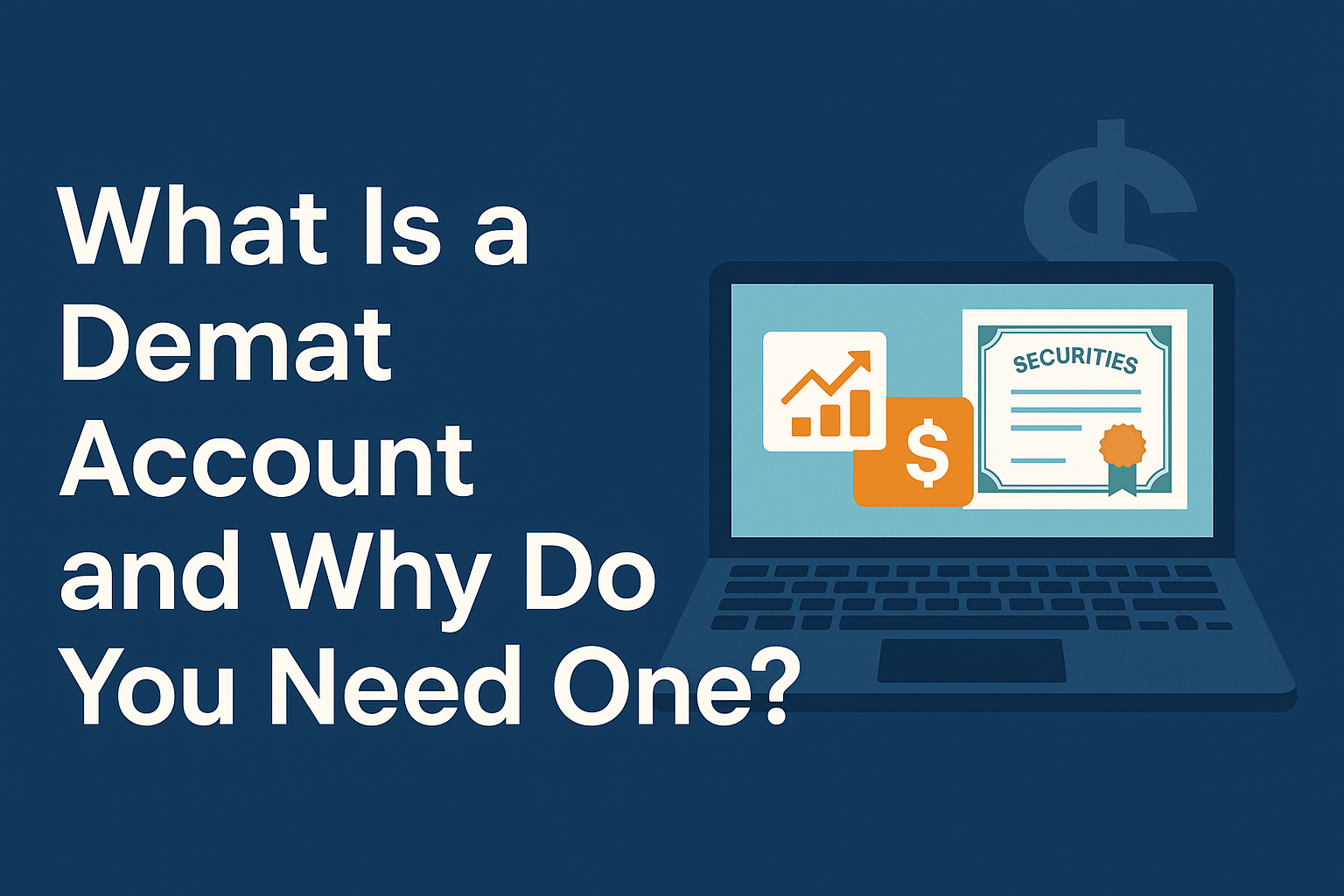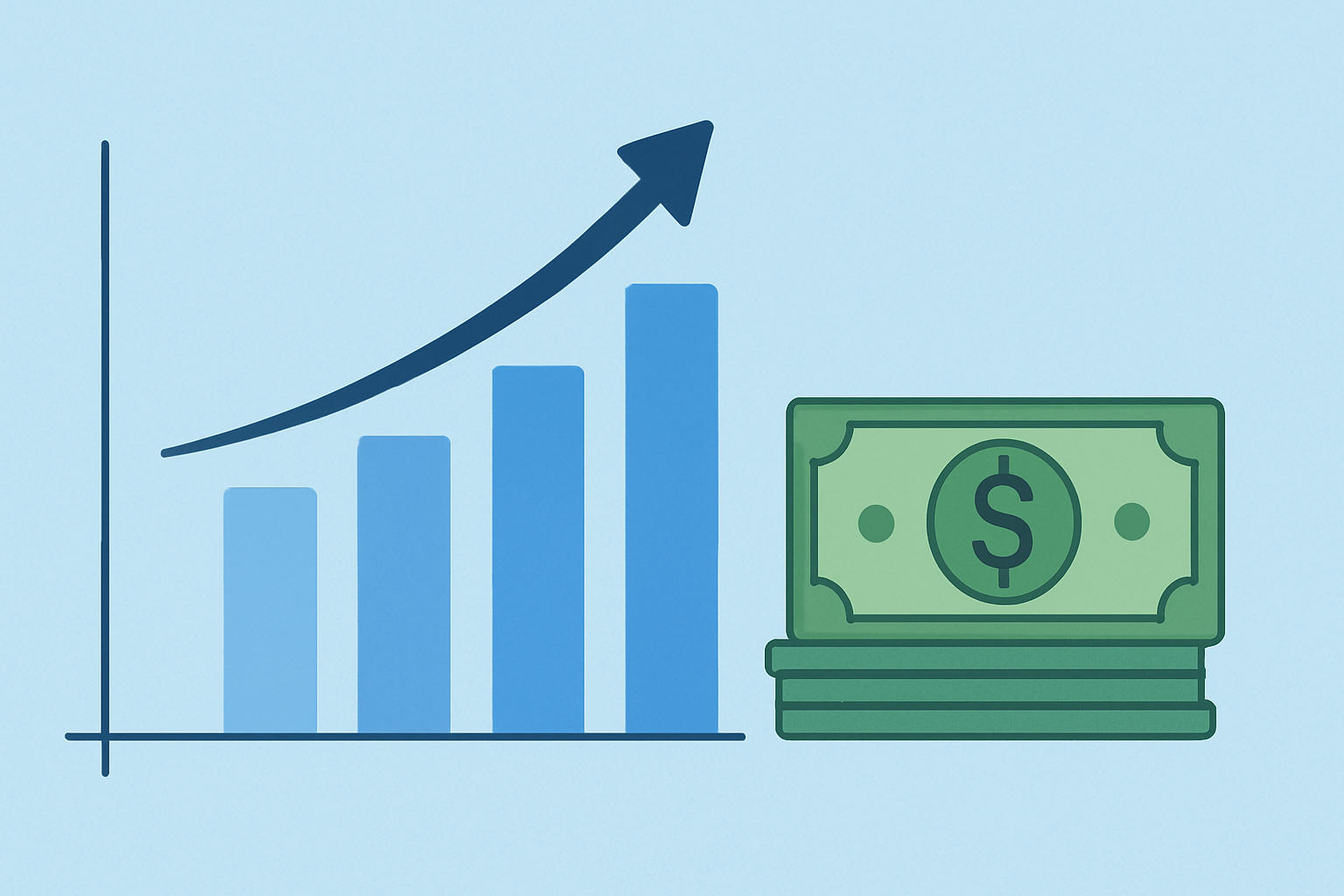What Is a Demat Account and Why Do You Need One?
Investing in the stock market is no longer just for Wall Street pros…
Investing in the stock market is no longer just for Wall Street pros. Today, more and more everyday Americans are exploring stocks, ETFs, and other securities to build long-term wealth. But before you start buying and selling shares, there’s one key thing you need to understand — the Demat account.
If you’ve heard the term before but aren’t sure what it means or whether it applies in the U.S., don’t worry — this guide is here to break it all down in simple terms.
First, what is a demat account?
Demat stands for dematerialized. A Demat account is an account that holds your financial securities (like stocks, ETFs, and bonds) in electronic form — eliminating the need for physical certificates.
Think of it like a digital locker for your investments.
Instead of holding paper share certificates like investors did in the past, your holdings are stored securely and conveniently online through your brokerage or clearing firm.
Do You Need a Demat Account in the USA?
Short answer: Not exactly — but you do need a brokerage account, which performs the same function as a Demat account does in countries like India.
In the U.S., when you open an account with platforms like Charles Schwab, Fidelity, Robinhood, or E*TRADE, you’re essentially getting a Demat + trading account in one package.
In the U.S., your brokerage account:
-
Holds your securities electronically
-
Lets you buy/sell stocks and ETFs
-
Keeps your transactions and records secure
-
Provides access to dividends, earnings, and tax forms
So while we don’t call it a Demat account here, the purpose it serves is exactly the same.
Why Is a (Demat-Style) Brokerage Account Important?
Here’s why you absolutely need one if you’re serious about investing:
1. Safe & Secure Storage
Your shares are held with a clearing corporation (like DTCC in the U.S.), which eliminates risks like loss, theft, or damage of paper documents.
2. Easy to Buy & Sell
Trade with a few taps on your phone — no paperwork, no postal delays.
3. Real-Time Tracking
Monitor your entire investment portfolio, stock performance, and gains/losses in real time.
4. Dividend & Earnings Access
Any dividends or stock splits are credited automatically to your account.
5. Tax Reporting Simplified
At the end of each year, your brokerage provides 1099 forms and other reports needed for filing your taxes easily.
Types of Accounts in the U.S. You Should Know
When you open a Demat-like account in the U.S., you can choose between several account types:
| Account Type | Purpose |
|---|---|
| Individual Brokerage Account | For personal investing (non-retirement) |
| Joint Account | Shared between two people (e.g., spouses) |
| Roth IRA/Traditional IRA | Tax-advantaged retirement investing |
| Custodial Account | For minors — managed by a parent/guardian |
Each of these accounts allows you to hold securities electronically, just like a Demat account does.
What Can You Hold in a U.S. Brokerage Account?
-
Stocks
-
Exchange-Traded Funds (ETFs)
-
Bonds
-
Mutual Funds
-
REITs (Real Estate Investment Trusts)
-
Options
-
Crypto (in select brokerages)
How to Open a “Demat-like” Account in the U.S.
It’s easier than ever. Here’s a step-by-step guide:
Step 1: Choose a Broker
Top beginner-friendly brokerages in the U.S. include
-
Robinhood
-
Fidelity
-
Charles Schwab
-
TD Ameritrade
-
E*TRADE
-
SoFi Invest
-
Webull
Step 2: Complete KYC & Application
You’ll need:
-
Social Security Number
-
Valid government ID
-
Bank account details
-
Employment information
Step 3: Fund Your Account
Transfer as little as $1 or more from your bank to get started.
Step 4: Start Investing
Buy your first stock, ETF, or mutual fund. Your securities will now be stored digitally in your account — safe, secure, and accessible anytime.
Difference Between Demat in India vs. U.S. Brokerage Accounts
| Feature | India (Demat) | U.S. Brokerage Account |
|---|---|---|
| Regulator | SEBI | SEC + FINRA |
| Account Opening | With Depository Participant | With Brokerage Firm |
| Depository | NSDL or CDSL | DTCC |
| Paper Certificate Phase | Still existed until 2000s | Eliminated much earlier |
| Need for Separate Trading Account | Yes (in many cases) | No, usually combined |
| Popular Brokers | Zerodha, Groww, ICICI | Robinhood, Fidelity, Schwab |
Is It Safe to Invest Through These Apps?
Yes — as long as you’re using a regulated broker. In the U.S., trustworthy brokers are registered with:
-
FINRA (Financial Industry Regulatory Authority)
-
SEC (Securities and Exchange Commission)
-
And insured by SIPC (protects up to $500,000 in securities)
Always check a platform’s credentials before signing up.
FAQs
Q1: Is there a Demat account in the U.S.?
Not by name, but the brokerage account serves the same purpose — it holds your securities electronically.
Q2: Can I invest in U.S. stocks without a brokerage account?
No. You must open an account with a licensed broker to legally invest.
Q3: Is there a minimum balance required to open an account?
Many modern brokers have no minimum balance (like Robinhood, SoFi, or Webull).
Q4: Do I need to pay fees to maintain the account?
Most brokers today charge zero account maintenance fees and $0 commission for stock trades.
Final Thoughts
While the term “Demat account” is more commonly used in countries like India, the concept is very much alive in the U.S.—through brokerage accounts.
Whether you’re investing $5 or $5000, a brokerage account is your gateway to the stock market. It keeps your investments safe, digital, and accessible — no paper required.
So if you’ve been thinking about getting started, now is the best time. Open a brokerage account, fund it, and take your first step toward financial freedom.




